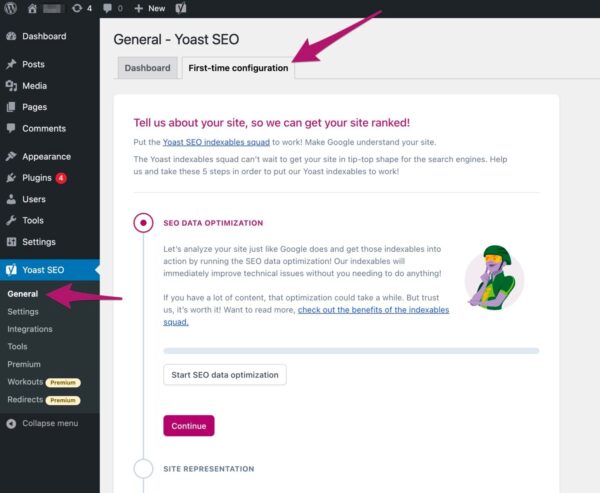Yoast SEO 20.2: Improving our database system

In Yoast SEO 20.2, we’ve improved our innovative indexables technology. We’ve developed a faster and more reliable way of indexing your site’s data. In turn, we make better use of this data to improve your site’s SEO. Plus, this technology helps us do our best to make the web greener and lays the groundwork for exciting future possibilities.
An improved indexing system
You might be wondering, “What exactly are indexables?” Well, think of them as a way to help search engines find and understand the content on your website. An indexable is any resource a search engine can index via a URL.
When a search engine “indexes” your website, it creates a map of all the pages it knows about. The indexables framework allows Yoast SEO to make a similar map of your site, interact with it and manage important SEO-related information.
But what makes indexables so special? Essentially, they allow Yoast SEO to better handle different types of content on your website beyond just traditional pages. This includes things like categories, archives, media files and far beyond that. This can greatly help larger sites with many different content types. Plus, it helps us build features on top of it!
And the best part? The indexables technology means better performance and more efficient use of resources. It’s a step towards making the web a little bit greener, as it reduces the amount of processing power needed to manage SEO metadata.
So, how does this work?
When you create a website, you like stuff to be easily accessible online. Indexables help Yoast SEO understand your website, so it can help search engines like Google understand your website better. Yoast SEO stores information about your website in a unique database table that we use to uncover and use your data — and speed up your database.
To put indexables to work, you need to optimize your website’s SEO data. You can do this when you set up Yoast SEO or at a later date. When you optimize your SEO data, Yoast SEO will store information about your website’s pages in a unique table. This can take some time, especially for large websites, but you only need to do it once. After the initial optimization, Yoast SEO will automatically update the indexables table whenever you change something on your website.
Today, we’re launching improvements to this system for Yoast SEO and WooCommerce SEO.

Going green with Yoast SEO
Our enhanced database system is one of the many improvements we’ve made to make a difference on the web. Thanks to this technology, we’ve improved the loading times of millions of websites. Features like our crawl optimization options help you determine what search engines should and shouldn’t crawl — keeping them in check and making them waste fewer resources.
When your website loads faster, it reduces the time and energy required to load and display each page. Less resources, such as electricity and data, are needed to load your website. This increased efficiency can positively impact the environment by reducing the energy required to power and cool the servers that host your website.
Additionally, optimizing your SEO data and improving the crawlability of your website makes it more efficient and easier for search engines and visitors to navigate.
Update to Yoast SEO 20.2
Yoast SEO 20.2 comes with an update to our indexable database system. With this release, we’re laying the groundwork for some interesting new developments. Plus, we’ve improved the system’s performance, helping to achieve a better web — and a greener planet! — for all.


Discussion (2)